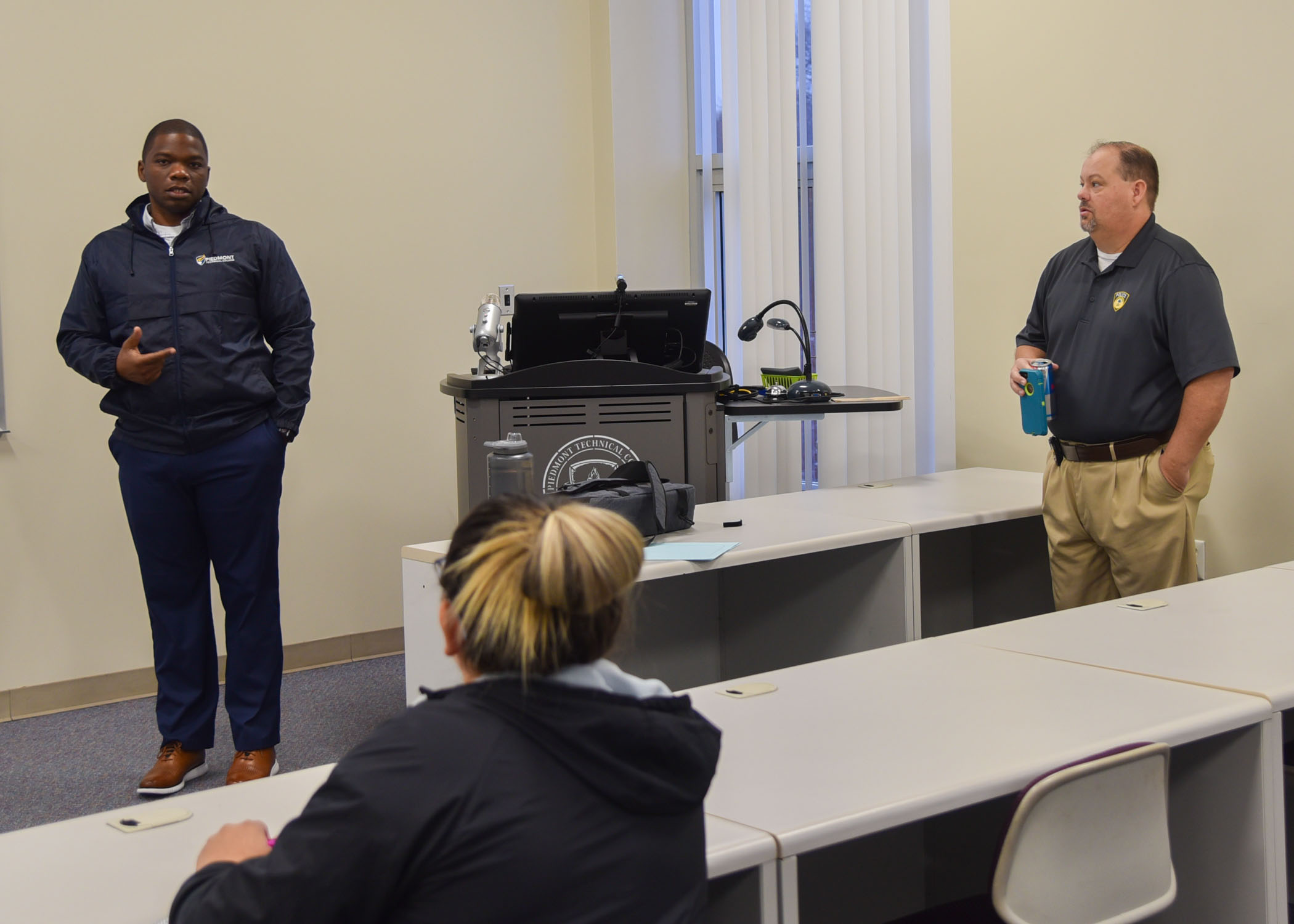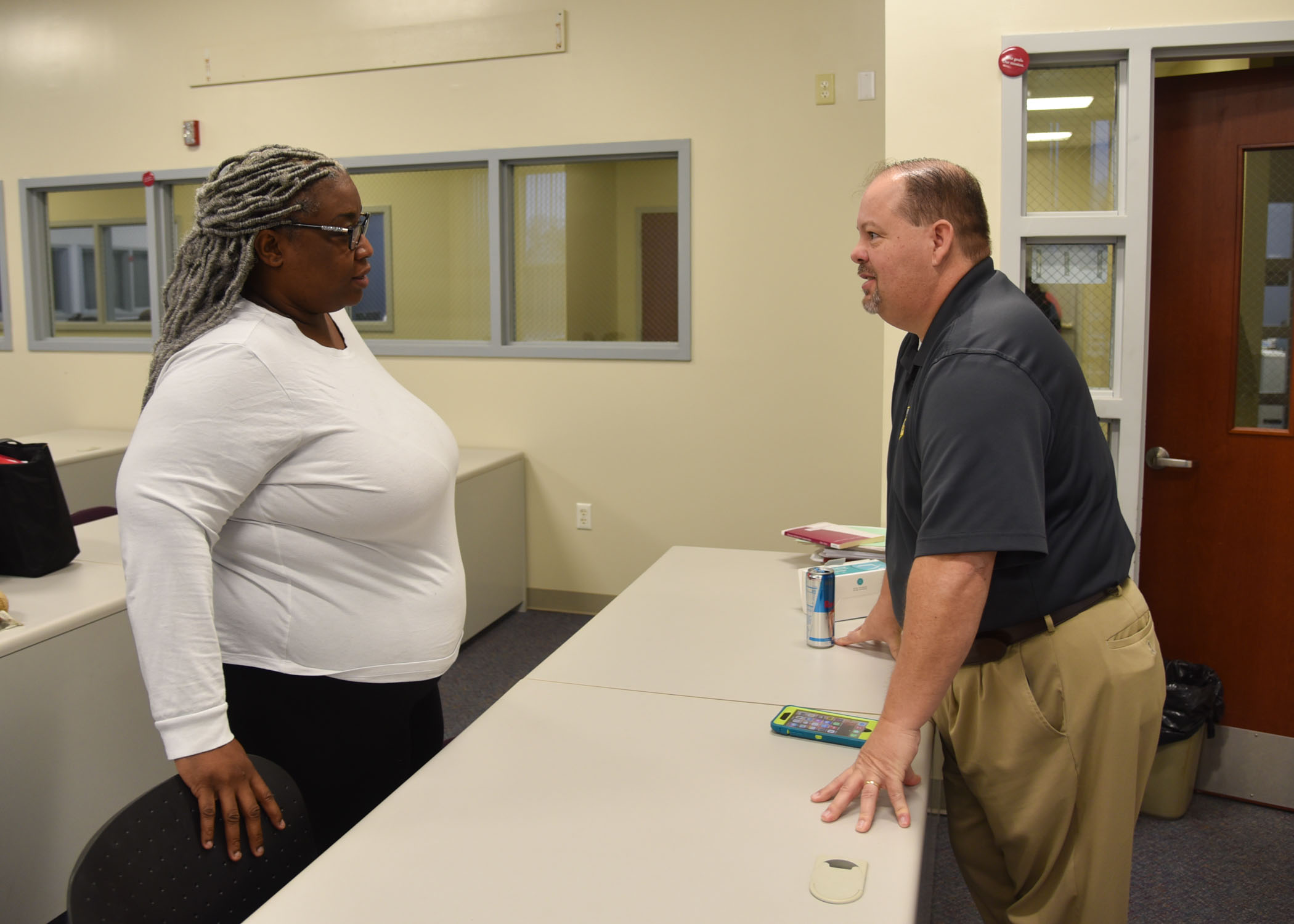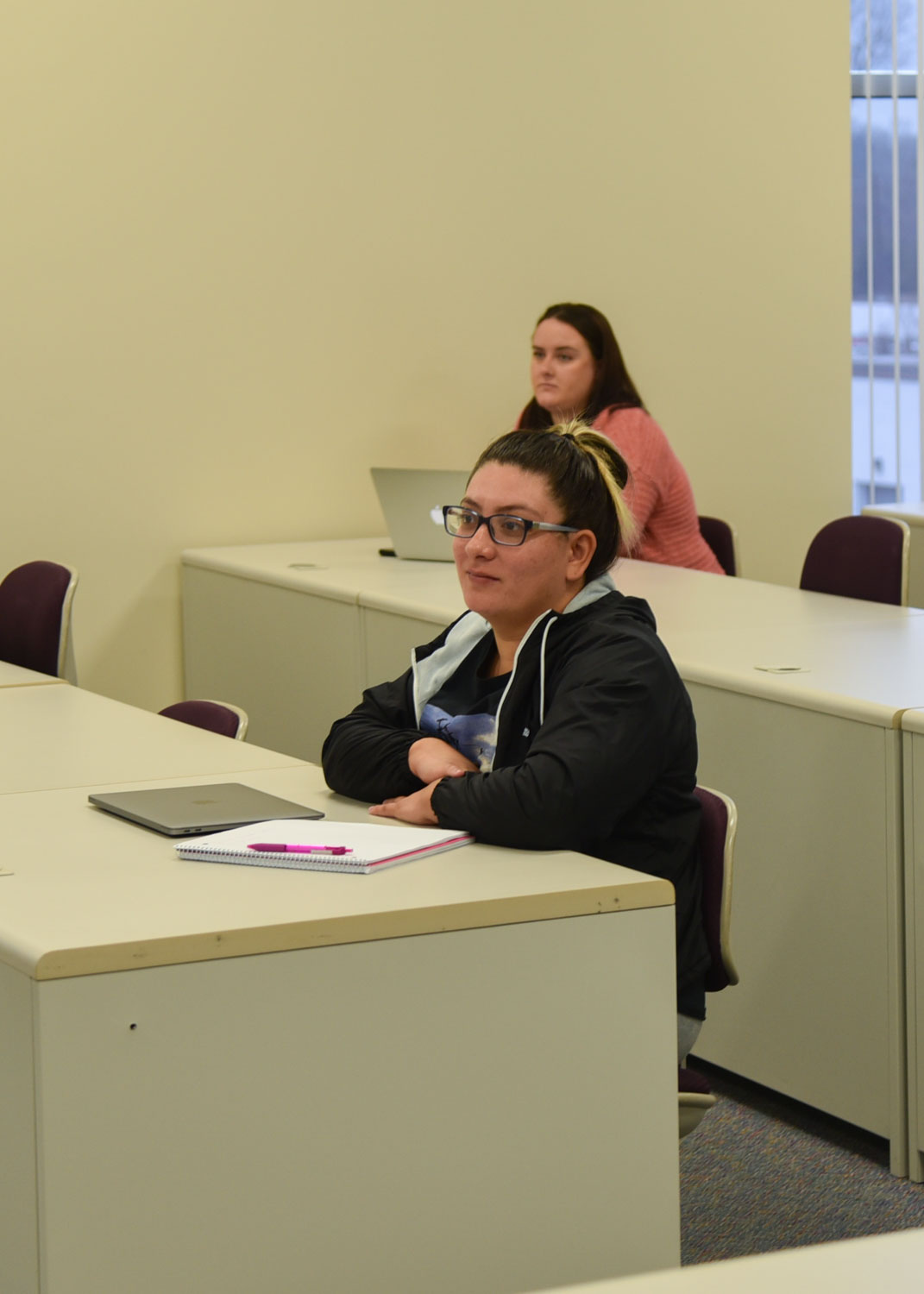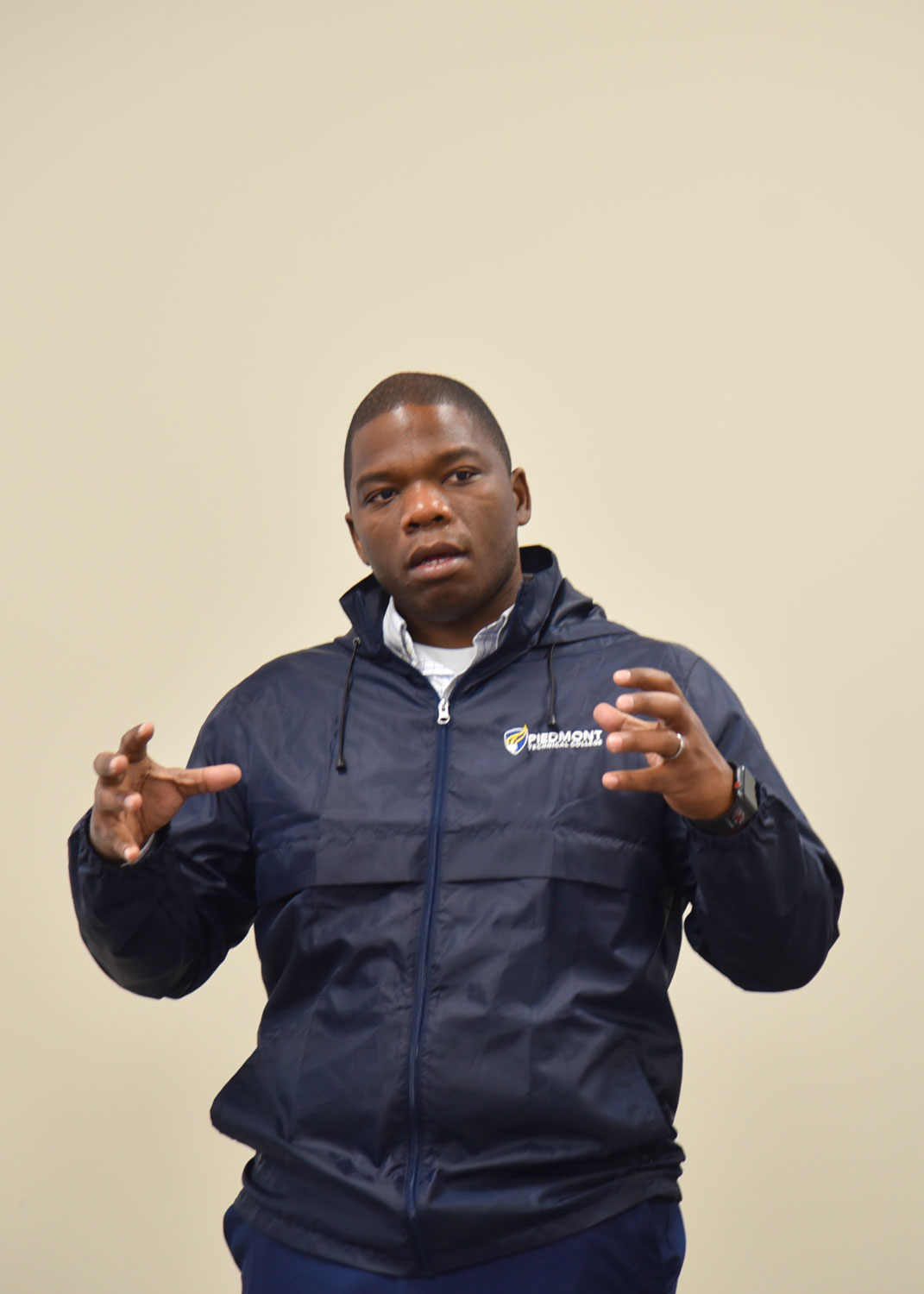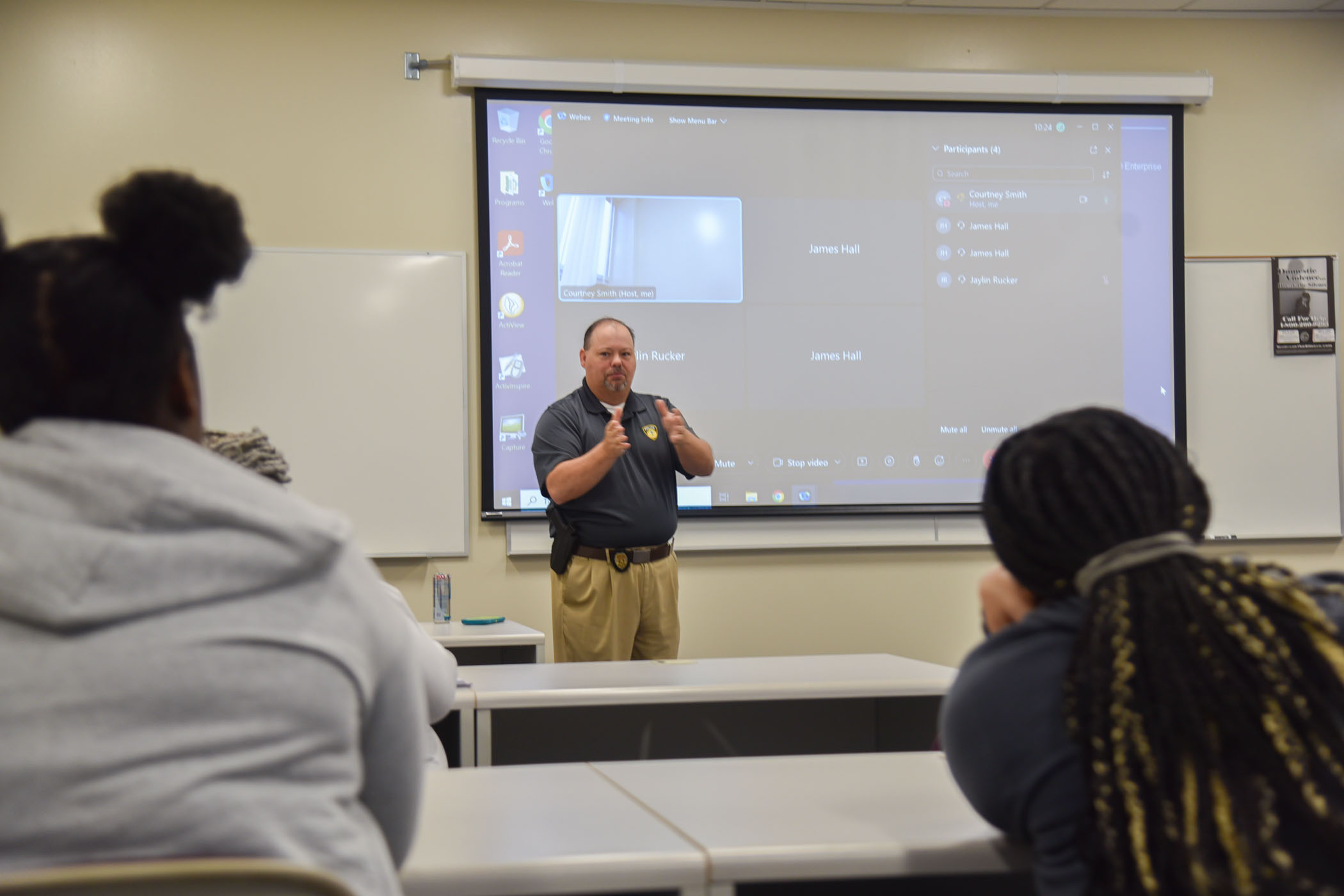Police Chief Smoothly Keeps Contact with Deputies While Giving Remarks
Cell phone logs are one form of documentation, and the fact that Greenwood Police Chief T.J. Chaudoin was interrupted by work-related texts while addressing Criminal Justice Instructor Courtney Smith’s class at Piedmont Technical College (PTC) recently only reinforced his message about the importance of good communication and thorough documentation in police work.
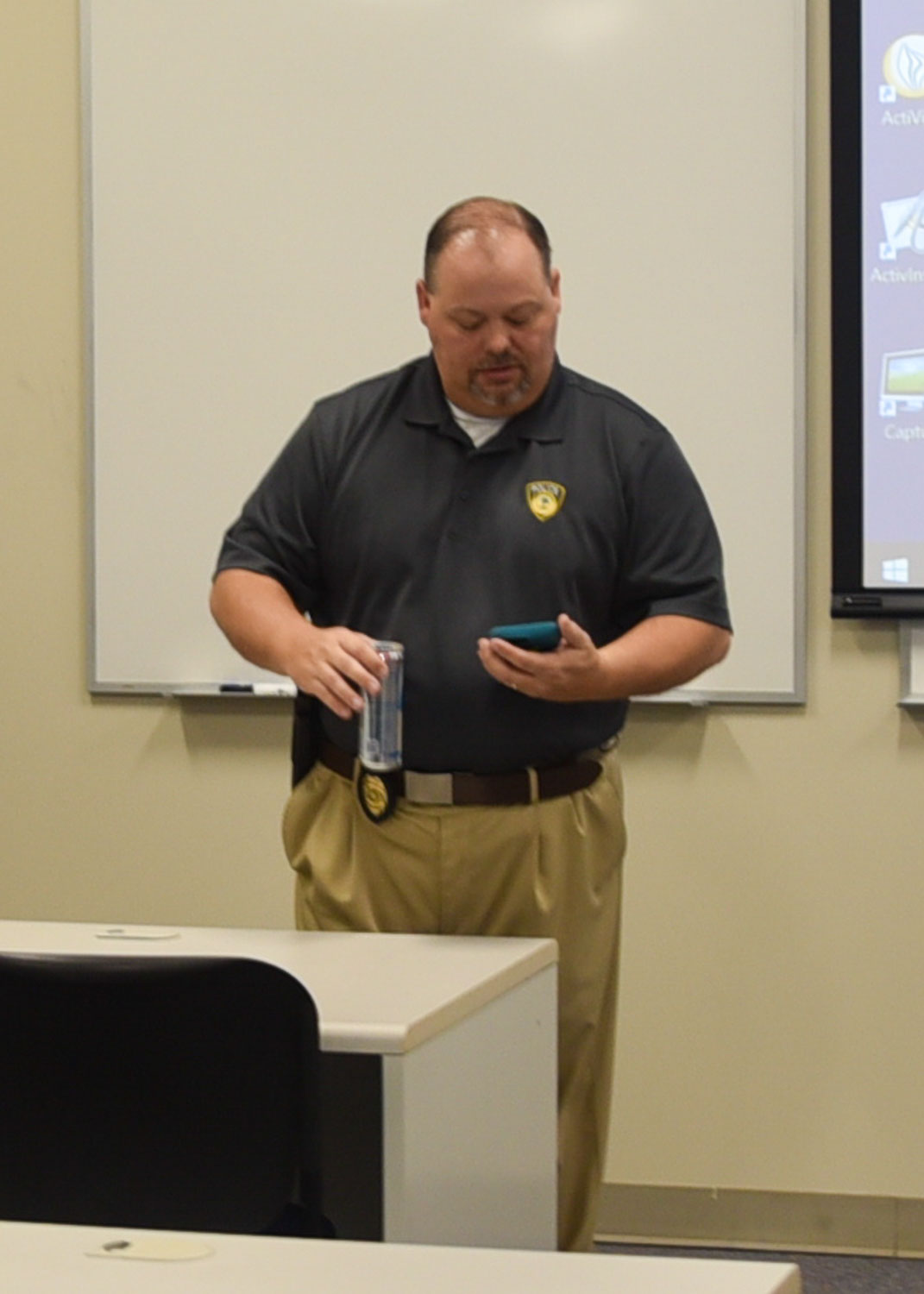
Every detail, no matter how innocuous it may seem, can be critical to prosecuting a criminal case. No instance of a law enforcement officer knocking on the door of a private residence comes without risk, and Chaudoin insists on being looped in on such activities in progress. It’s a matter of good habits grounded in consistent, sound procedure.
“It’s probably one of the most important things I have to tell you,” Chaudoin told the class. “If you don’t write it down, it didn’t happen. That’s why it is so important to document everything.”
In criminal cases especially, obtaining a conviction often depends on the first responding officers and how they investigate and document the scene. Often times, it may be one or two years before a case goes to trial. Considering the number of cases officers touch over the course of those many months, it is difficult to remember precisely information gathered at the scene or during a specific arrest. Because memory can fade, documentation is paramount.
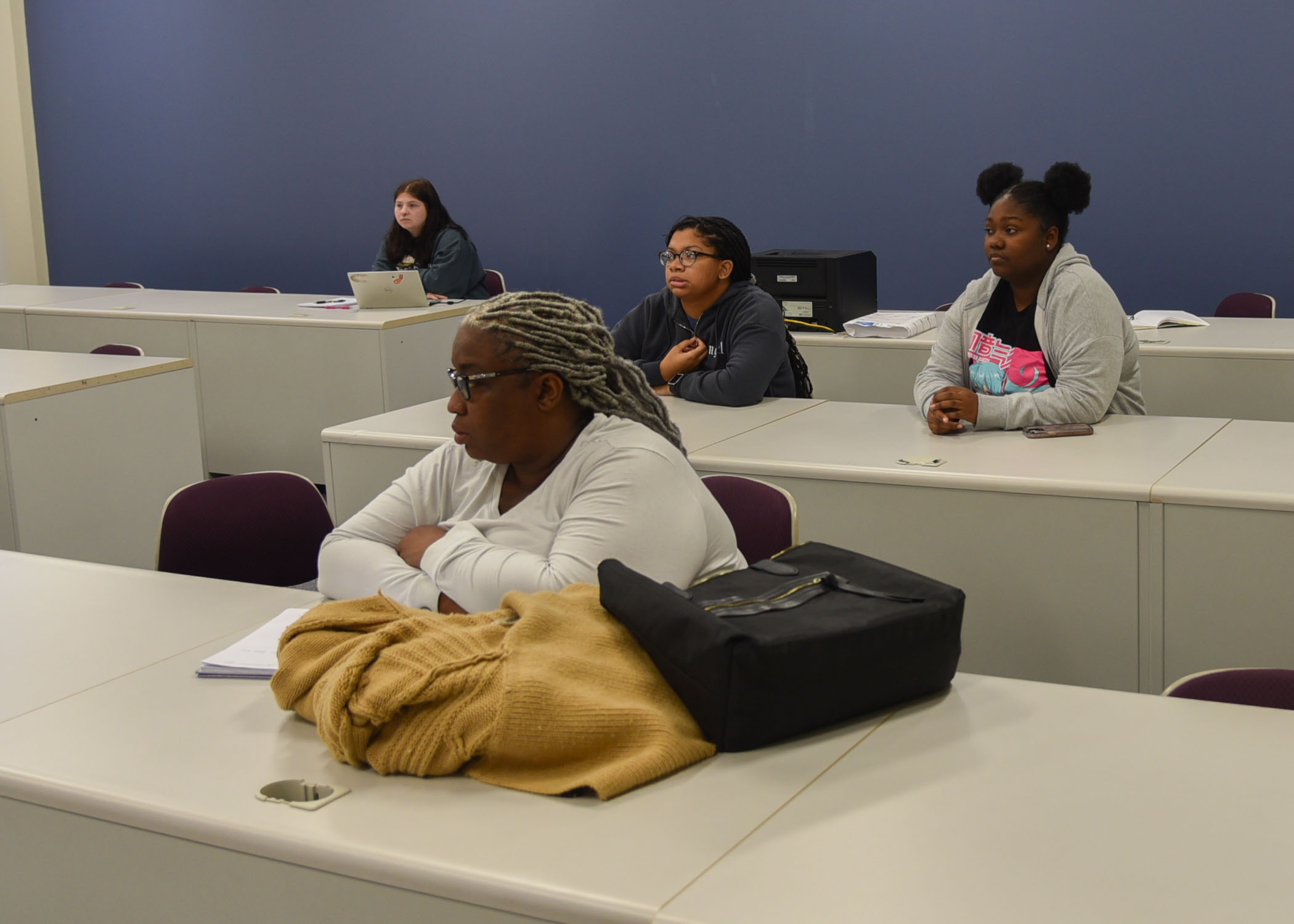
Police officers routinely are called to testify in criminal trials and must have the case solidly in hand. No one in the courtroom should know more about the case than the responding officer.
“When the defense attorney gets you on the stand, if you know your case, you won’t have any issues,” he said, adding that even in those times, you want to establish some form of a relationship with the jury, even if only through eye contact. “When I am called as a witness, I always turn the chair toward the jury, so I am looking at them and addressing them, not the attorneys. It helps me build a connection with them.”
Smith, a law enforcement veteran, echoed those sentiments: “You must have put all of the pieces together by the time you transfer the case to the prosecutor’s office,” he said. “Investigation from start to finish is essential to having an airtight case.”
Good ethics and moral conduct are fundamental in law enforcement. Negative headlines about police use of force represent the exception and not the rule. Nonetheless, when they occur, it affects the entire profession.
“Brutality cases like what happened in Memphis, they affect us all. When someone messes up and they wear a badge, it hurts us all,” Chaudoin said. “As a police department, we have to change the culture. The only way to do that is by bringing in more diversity.”
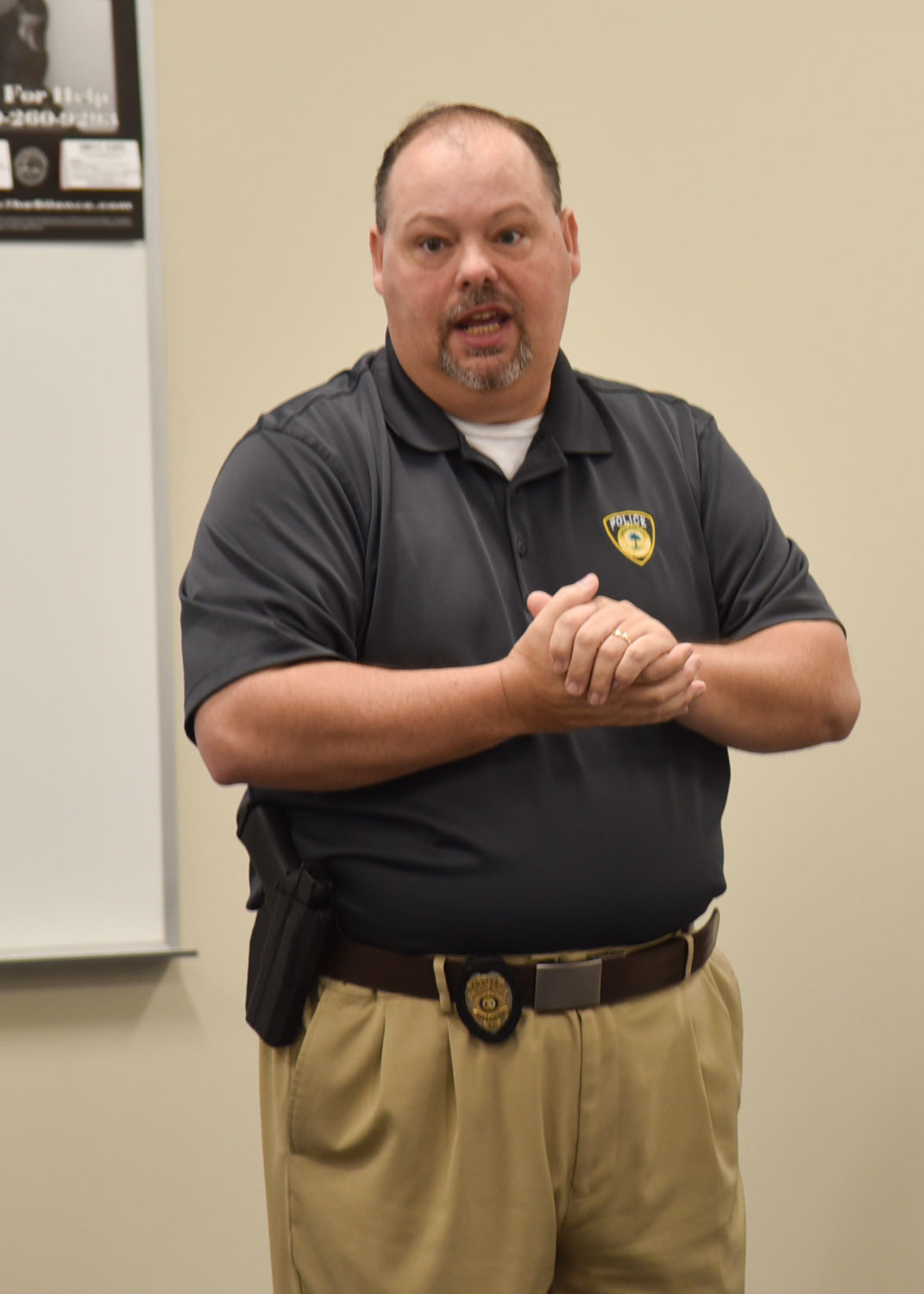
Chaudoin noted that the profession needs more females and people of color. For a first-person experience, he invited the students to schedule a ride-along any time.
“I hope some of you will come fly with us,” he said.
PTC offers a Police Pre-Academy Training certificate for individuals seeking to become employed as law enforcement officers in South Carolina. To learn more about PTC’s Criminal Justice Program, go to www.ptc.edu/justice.
